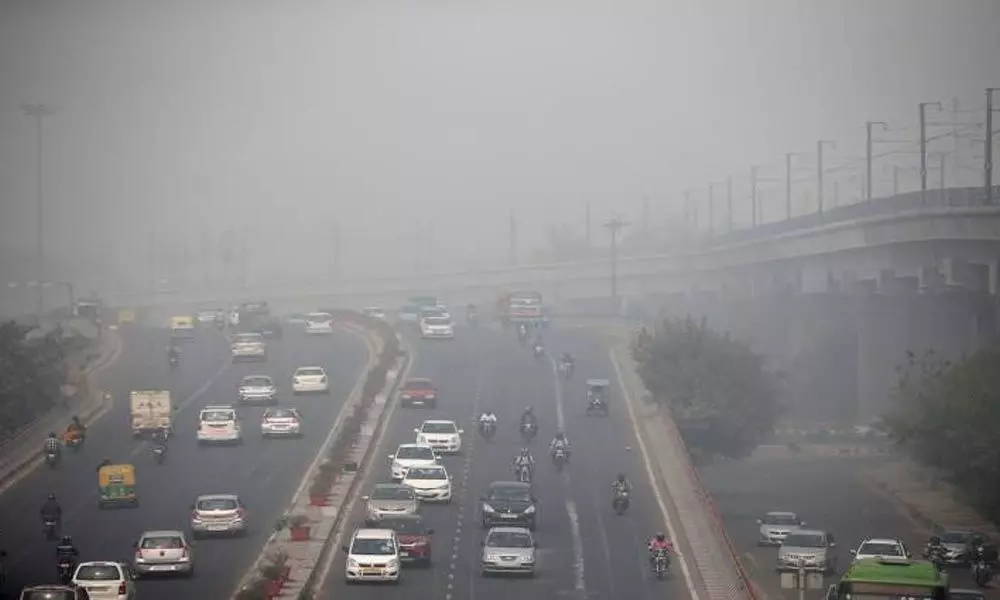Fight Against Dengue. Delhi Shows way to Telangana

The capital city of India New Delhi is heaving a sigh of relief post this monsoon period (this has been an extended monsoon) thanks to a committed Government's dedicated efforts and the cooperation of the citizens.
New Delhi: The capital city of India New Delhi is heaving a sigh of relief post this monsoon period (this has been an extended monsoon) thanks to a committed Government's dedicated efforts and the cooperation of the citizens. Together the rulers and the ruled have proved that sustained action would provide positive results in any area of governance.
The fight against dengue is one such. The national Capital used to witness no less than 20,000 dengue cases on an average (reported cases only) each year. When the AAP government woke up to the reality a couple of years ago that it needed a coordinated action, it launched a two-front attack against dengue.
The first mohalla clinic of Delhi was inaugurated on July 19, 2015, at Peeragarhi area of West Delhi. It took another 9 months to set up an additional 100 clinics. By December 2016, a total of 106 clinics were established across all 11 districts and in 55 of total 70 assembly constituencies of the state. The Government of Delhi had planned to launch 1000 such clinics, However, in spite of high political ownership and huge demand from the community, nearly 10% of the target numbers of these clinics could be established by the target timeline of December 2016.
The delay in setting up of planned numbers of clinics has been attributed to factors, including insufficient advance planning (there was no operational plan developed till 1 year in the implementation), difficulty in selection of the sites (the land is not controlled by the state government), delay in approvals of proposals at various levels, and frequent change in technical leadership in health department among other.
Together we all have to fight against Dengue .
— SirishaRao (@SirishaRao17) September 8, 2019
Request everyone to participate in the campaign #10Hafte10Baje10Minute pic.twitter.com/xYgsyen0ra
Majority of the clinics had been started in the early 2016 and became popular among the community, soon thereafter. An official release from the Government of Delhi reported that by July 2016, nearly 800,000 people had availed health services & 43,000 pathological tests were conducted in 5 months. Every clinic on average was catering to 70–100 patients per working day. In September–October 2016, when Delhi witnessed an outbreak of dengue and Chikungunya diseases and the health facilities were flooded with the patient, the mohalla clinics became a key entry point for patients to get examined and laboratory test for dengue done. This was considered a major relief for large health facilities and allayed the crisis in the city. By the end of the year 2016, around 1.5 million patients were examined at these facilities, most of which were functioning for less than a year till then. This year hardly 2,000 cases have been reported. Chikungunya cases are nominal this year and viral fevers to have come down.
In addition, now there is a new campaign launched by the Chief Minister, Arvind Kejriwal called "10 Weeks, 10 AM, 10 minutes" which asks people to inspect their households to prevent mosquito breeding grounds. People do it happily.
I have inspected my home today morning at 10 AM and replaced clean stagnant water that had accumulated for a few days. Our home is now dengue free
— Arvind Kejriwal (@ArvindKejriwal) September 8, 2019
I am happy to see so many of you participating in the #10Hafte10Baje10Minute campaign.
Together, we will definitely defeat dengue. pic.twitter.com/dg7402LkW6
Here is something which the Telangana government too can perhaps emulate. Each and every 'gully' of Delhi gets garbage collection vans with an audio system that keep reminding people of the importance of the fight against mosquitoes every morning.
Telangana government which is under attack from the Opposition should introspect as to why it failed in implementing the Mohalla clinics scheme despite several tours by the GHMC political leadership to Delhi. or in adopting awareness campaigns







